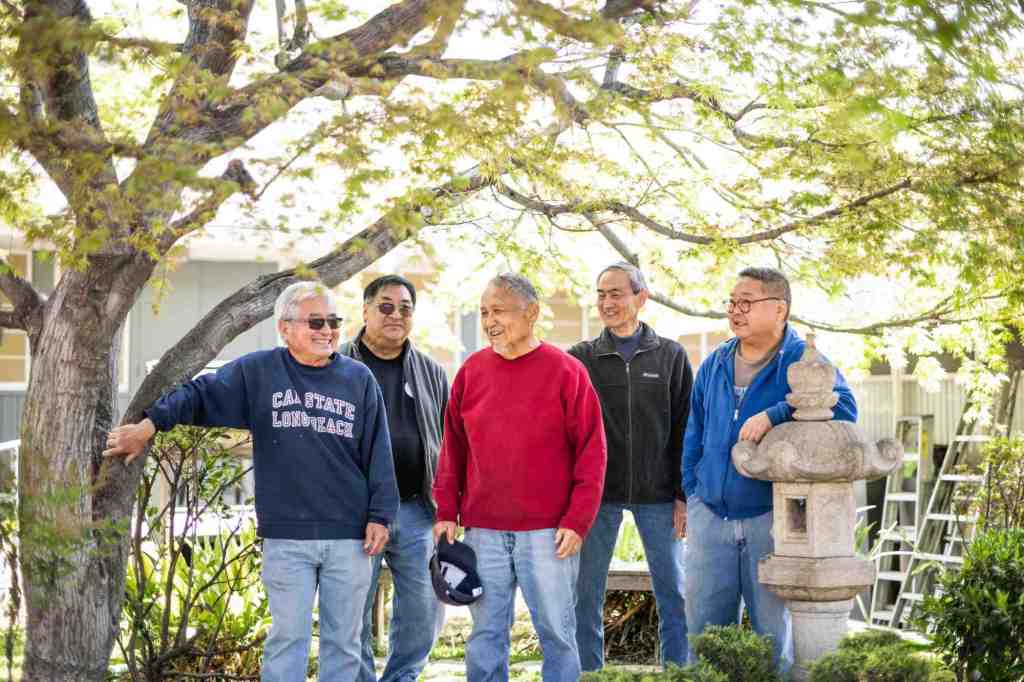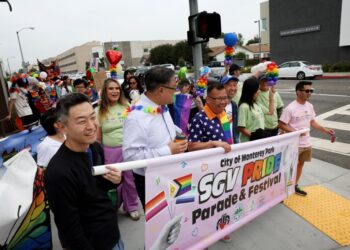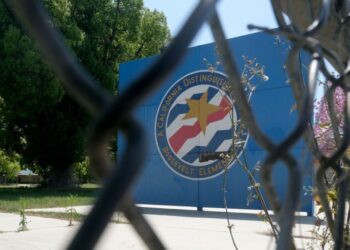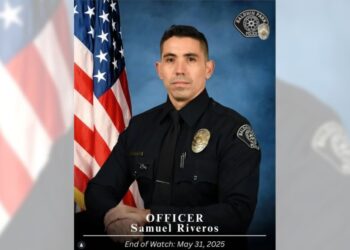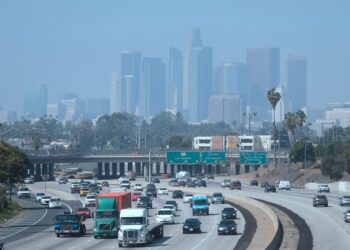Follow the laughter to the garden. Under the shade of a maple tree, the Sons of Gardeners are engaged in teasing camaraderie: George did all the work today. He can have lunch.
Robert “Bobby” Fukumoto, 72, of Pasadena, and Alan Hatakeyama, 77, also of Pasadena, hold up fingers darkened by oil. They’ve been switching out locks on the temple doors. Fine. They can eat lunch too.
“The important part of the name is ‘Sons,’” Fukumoto said. “We pay homage to the hard work our fathers did. We’re not gardeners, we’re not as good as our fathers.”
The Pasadena Buddhist Temple Sons of Gardeners, or SOGs, as they call themselves, did pick up enough gardening skills to tend to the temple grounds, working from 8:30 a.m. to 1 p.m. Tuesdays and Thursdays, with most of them staying after for a Tai Chi class run by the Rev. Gregory Gibbs.
“We’re here because of our parents doing what they did for us, once we realized, ‘Wow, our parents really sacrificed for us,’” Fukumoto said.
Most of the SOGs are longtime temple members, back when they were still “boy-sans.” Their fathers were part of a generation of Japanese American gardeners who transformed Southern California’s green spaces, in the face of discriminatory laws and everyday racism, and even after the loss of their homes and freedom during World War II.
Scott Shinmoto, 74, born and raised in Pasadena, is considered to possess the group’s greenest thumb. The retired financial analyst for Rockwell International/Boeing said apart from inheriting his father’s tools, he didn’t glean much knowledge from his father, instead teaching himself during retirement.
“I wish I knew more from him,” Shinmoto said.

His father, Bill, was an Alhambra High School graduate who entered the military in 1940. He eventually served in the famous “Go for broke!” 442nd Regimental Combat Team during World War II. The regiment is the most decorated unit in U.S. Army history for its size and length of…
Read the full article here

